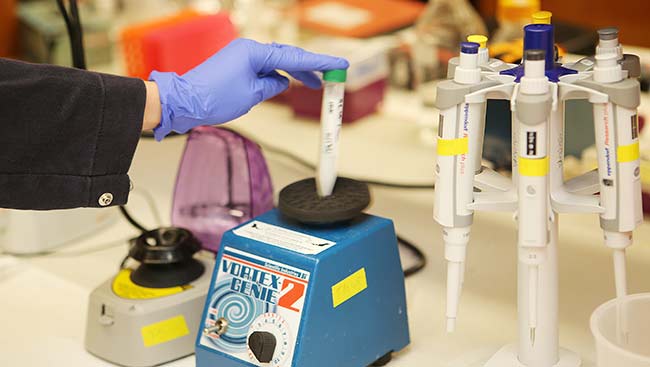
One of the most important decisions you’ll make in graduate school is choosing the lab where you’ll do your thesis research. Most neuroscience graduate programs have a rotation system where first year students go through 8-12 week lab rotations to find the right fit. Selecting rotations can be stressful, especially when you’re just starting a program and are unfamiliar with an institution.
Here are five questions to help guide your decision.
What are you interested in?
This is probably the first, and most obvious, question. However, it’s not always the most important one to ask. If you’re in a neuroscience graduate program, you are probably intellectually curious with diverse interests, which means you’ll likely be interested in a variety of research questions on many topics.
If that’s the case, consider the next four as you weigh your decision.
Is there a particular technique you want to learn?
If you find yourself trying to choose between several labs that study similar topics (or labs that study different yet equally interesting topics), consider which techniques you want to learn. Learning diverse skills, such as electrophysiology, computer modeling, cell culture, or optogenetics, will increase your marketability as a scientist.
Even if you decide not to join that particular lab at the end of your rotation, you may be able to bring your new skills to your chosen lab or develop a collaboration between them.
How likely is this investigator to take on students?
Investigators have limited funds and time for new students, so if a lab already has many graduate students, the PI is likely unable to bring in one more. However, if a student is graduating soon or if the investigator recently received a large grant, it’s more likely that there could be a spot for you.
Learn this information by talking to more advanced students, both in and out of the lab, and by having the uncomfortable — yet necessary — conversation with the investigator. Your program director may also have advice on which investigators are actively looking for students.
Are current students in the lab happy and productive?
You’ll learn more about the lab atmosphere during your rotation, but if you’re trying to decide between labs, the answer to this question is a good marker of whether you’ll enjoy your rotation and want to stay in the lab.
Although graduate school is difficult, the current students should be relatively satisfied with the PI and their progress. If there are students who seem to be floundering or who have a contentious relationship with the investigator, be cautious. The problems might originate with the student (senior graduate students may seem frustrated), or they might be indicative of the lab environment. Focusing on the perspectives of younger students and the productivity of older ones can be helpful.
Is the investigator somebody you want to know (or someone who you want to know you)?
Importantly, rotating enables you to make connections with other mentors, sources for future recommendations, or committee members. It also enables you to obtain a more diverse view of your field of interest. You may connect with a high-profile investigator (even if you only meet him or her once), and you will also have the opportunity to gain insights from postdoctoral fellows and more advanced students who are in your desired field.
As you can see, there are many factors besides research to consider when choosing a rotation lab. How did you choose yours? What advice would you give someone in the middle of their rotations? Share in the comments.






